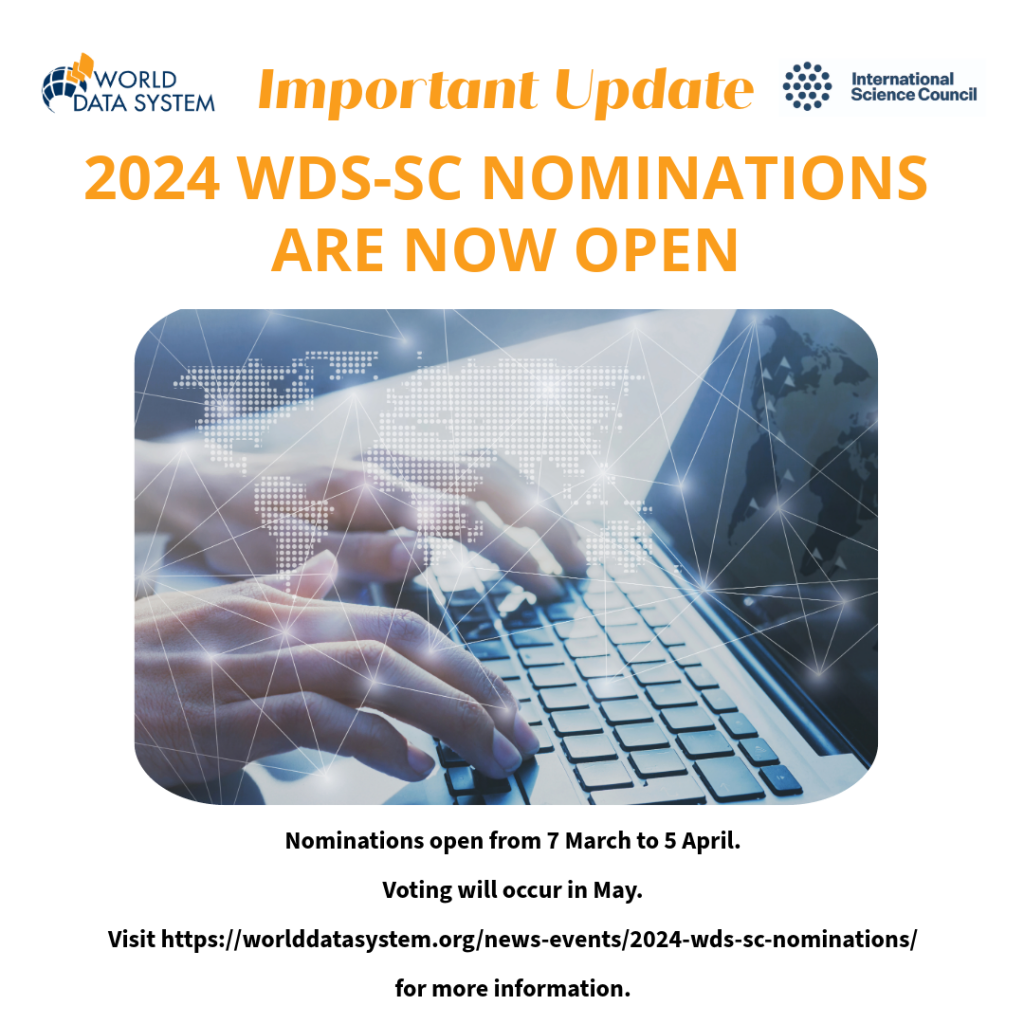7 Feb 2024 | News

The World Data System’s International Program Office (WDS-IPO) proudly announces the hiring of Cameron Breland as the new Communications Specialist, joining the active team led by Dr. Suzie Allard, Principal Investigator, and Meredith Goins, Executive Director. With an M.S. in Journalism and an undergraduate degree in Integrated Marketing and Communications, Cameron brings distinctive marketing experience from collegiate athletics, higher education, and public health to the communications role for the WDS-IPO.
Throughout his education and early career in marketing, Cameron developed a passion for seeking out information. The COVID-19 pandemic was occurring as he was completing his master’s, and his unique viewpoint on COVID-19 misinformation and the possible health effects of social media misinformation led him to develop a thesis project based in the public health field. It was a holistic perspective on the intersection of social media, health education, and misinformation in the United States, with an emphasis on misinformation during the COVID-19 pandemic. His graduate research on social media within the public health system taught him about the importance of prompt data collection, as research and future progress in any discipline depend heavily on data access.
Furthermore, Cameron’s experience in promotions with various community shareholders in public health and conducting procedures through team efforts in a local government setting further enhanced his ability to communicate efficiently within the international research community. His passion for critical analysis and data-driven communications aligns with the WDS’s commitment to promoting unrestricted access to invaluable research data worldwide.
Meredith Goins, on behalf of the WDS-IPO leadership team, expresses her confidence in Cameron’s exceptional qualifications, “WDS-IPO is thrilled to have a strong communicator with research experience join our team. His selection signifies the WDS’s dedication to advancing open science and empowering researchers with unfettered access to critical data resources.”
“I am excited about the opportunity to contribute to the valued team at the World Data System’s International Program Office,” expresses Cameron Breland. “Together, we will continue the great work in outreach to further advance networks and always keep moving our mission forward.”
Media Contact: Cameron Breland, Communications Specialist, cbrelan1@utk.edu
 The World Data System is pleased to announce the appointment of two new members to its Scientific Committee (SC), whose terms began on 1 July 2024. Join us in sending them a warm welcome and best wishes as they start their new roles. The nomination and selection process highlighted our commitment to maintaining high standards within our governing body while promoting diversity, inclusivity, and global representation within WDS.
The World Data System is pleased to announce the appointment of two new members to its Scientific Committee (SC), whose terms began on 1 July 2024. Join us in sending them a warm welcome and best wishes as they start their new roles. The nomination and selection process highlighted our commitment to maintaining high standards within our governing body while promoting diversity, inclusivity, and global representation within WDS.

 WDS ENDORSES DORA DECLARATION ON RESEARCH ASSESSMENT
WDS ENDORSES DORA DECLARATION ON RESEARCH ASSESSMENT

